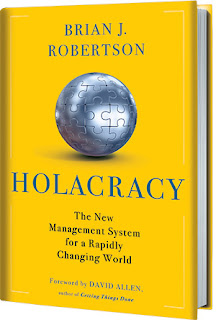My latest book post on the strategy+business blogs:
In a time when ideology often trumps reality, Jeffery Pfeffer is an unrepentant Machiavellian. Like Niccolò Machiavelli, Pfeffer, who is the Thomas D. Dee II Professor of Organizational Behavior at Stanford University’s Graduate School of Business, studies and teaches the ways and means of power. And he, too, is convinced that a clear-eyed understanding of the world and how it works is an essential prerequisite of leadership effectiveness.
Most of Pfeffer’s 14 books are devoted to bolstering this effectiveness. In Hard Facts, Dangerous Half-Truths, and Total Nonsense: Profiting from Evidence-Based Management (Harvard Business Review Press, 2006), Pfeffer and coauthor Robert Suttonshowed that conventional management wisdom was rife with fallacies and argued for a more scientific approach that presaged the current interest in data science. In Power: Why Some People Have It — and Others Don’t (Harper Business, 2010), which stemmed from his popular course at Stanford, “The Paths to Power,” Pfeffer argued that the ability to attain and wield power was an indispensable trait of leadership success.
In his latest book, Leadership BS: Fixing Workplaces and Careers One Truth at a Time (Harper Business, 2015), Pfeffer delivers a powerful indictment of the leadership industry, whose teachings, he says, undermine the overall state of leadership because they are “based more on hope than reality, on wishes rather than data, on beliefs instead of science.” Curious to learn where we might go for better information, I asked him what books he would recommend for aspiring and existing leaders.
In his latest book, Leadership BS: Fixing Workplaces and Careers One Truth at a Time (Harper Business, 2015), Pfeffer delivers a powerful indictment of the leadership industry, whose teachings, he says, undermine the overall state of leadership because they are “based more on hope than reality, on wishes rather than data, on beliefs instead of science.” Curious to learn where we might go for better information, I asked him what books he would recommend for aspiring and existing leaders.
Influence: Science and Practice, 5th Edition, by Robert B. Cialdini (Pearson, 2008). “Influence is both well-written and profoundly insightful about human behavior. It demonstrates that business books can be rigorous and accessible at the same time. If you want to understand the use of power, you need to begin with Bob Cialdini’s seven principles of influence.”
Moneyball: The Art of Winning an Unfair Game, by Michael Lewis (W.W. Norton, 2003). “The thing that attracts me to Moneyball and why it such a wonderful book, aside from Lewis’s engaging and inspirational writing, is that it did a better job of explaining evidence-based management than Bob Sutton and I did in our book. It is a book that speaks to the power of analysis and critical thinking — of asking tough questions and using data to answer those questions, and how that can improve decision making and business performance. Moneyball shows why CEOs cannot push off data science to the IT department.”
The Power Broker: Robert Moses and the Fall of New York, by Robert A. Caro (Knopf, 1974). “This Pulitzer Prize–winner is a brilliant biography of a transformative figure of the 20th century that does not mythologize or sugarcoat who and what Robert Moses was. It’s also a history of New York and the policies of urban renewal that exist to this day, as well as a tremendous study of power and power dynamics. Caro’s ambivalence about power is reflective of what I see in students and other people. On the one hand, we admire power for its capacity to get things done (Moses basically reconstructed New York City) — and on the other, we are horrified by the tactics and the strategies needed to actually make big things happen. In a very explicit way,The Power Broker examines the tradeoff between means and ends.”
The Reckoning, by David Halberstam (William Morrow, 1986). “When I first read The Reckoning, I thought it was going to be about the fall of the U.S. auto industry, which of course it is. It also turned out to be a fabulous study of business cultures and management told through the story of Robert McNamara and the so-called Whiz Kids. Halberstam tracks the rise of the modern management ethos in the U.S. — which focuses on numbers and returning money to shareholders, and which claims that a good leader can run anything from General Motors to the Department of Defense — versus the very different ethos we see in countries such as Japan and Germany. The Reckoning is an important book because it speaks to the implicit and sometimes explicit assumptions we have about what leaders and managers do and how they ought to think about their jobs. These are issues that we are still struggling with today.”















